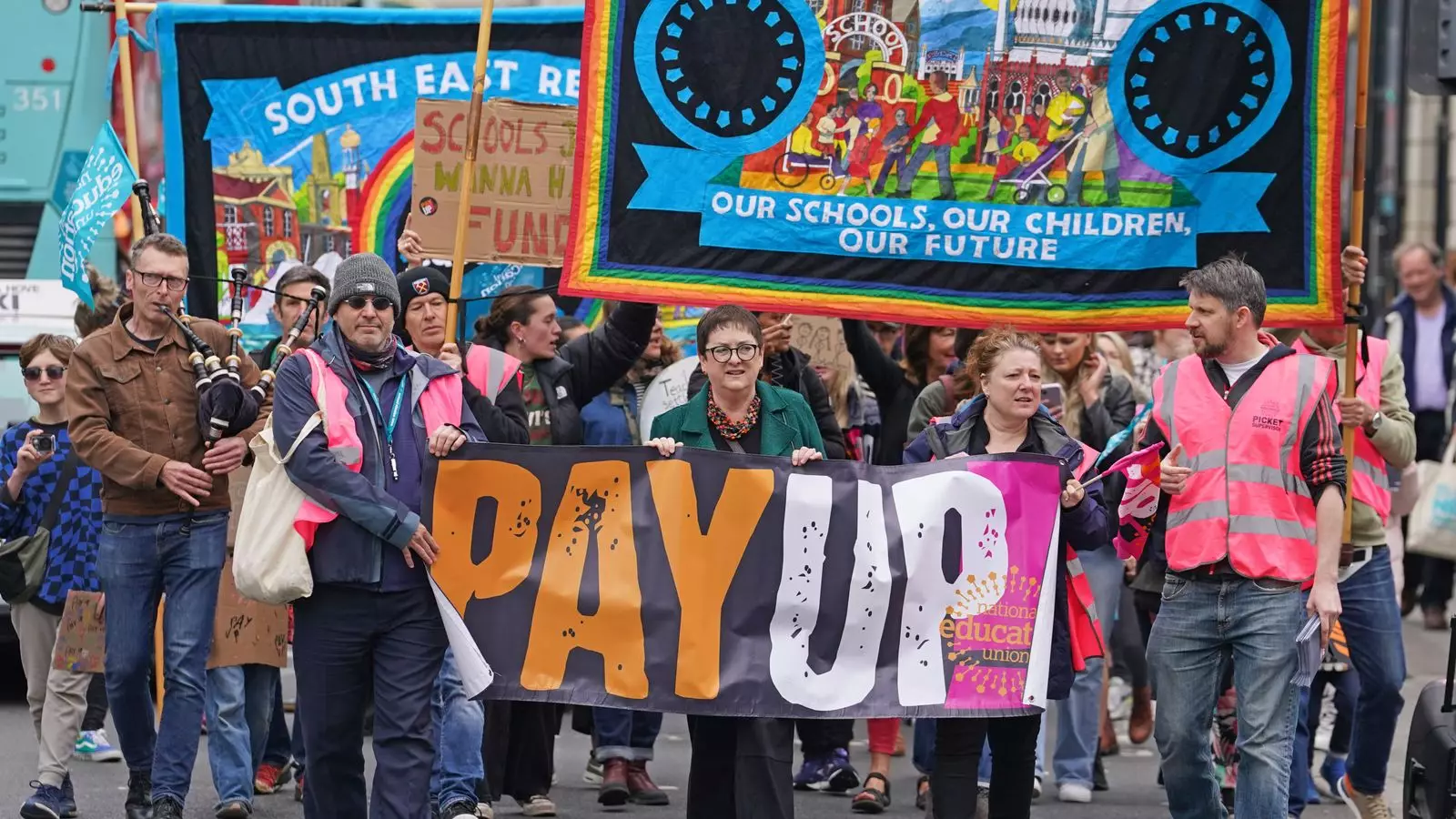The recent proposals for inflation-busting wage hikes in the public sector have stirred up debate regarding the government’s fiscal rules. Treasury minister James Murray emphasized that the Labour government’s fiscal rules are “non-negotiable” amidst the discussions surrounding a potential 5.5% increase in salaries for teachers and NHS staff. With estimated costs ranging in the billions, the government faces a significant financial challenge in meeting these wage demands.
Implications of a Pay Increase
The reported 5.5% pay increase recommended by independent pay review bodies could have far-reaching implications for the overall economy. While the government had initially budgeted for a more modest increase of 1% to 3%, the higher proposed raise could strain existing budgets for schools and hospitals. The prospect of having to make cuts in other essential services to accommodate the wage hikes raises concerns about the sustainability of such a decision.
Chancellor’s Dilemma
Chancellor Rachel Reeves finds herself in a challenging position as she weighs the potential consequences of agreeing to the recommended pay increase. With inflation currently standing at 2%, an above-inflation raise could have a domino effect on public finances. Reeves must carefully consider the economic impact of such a decision, especially as the government had pledged to control borrowing and avoid tax hikes during the election campaign.
One of the key reasons cited for considering the pay increase is to address recruitment and retention issues in critical sectors such as education and healthcare. Long-term problems related to attracting and retaining skilled professionals in these fields could worsen without a competitive salary package. The government must strike a balance between meeting the demands of public sector workers and maintaining financial stability.
Ignoring the recommendations of pay-review bodies could potentially lead to widespread industrial action across various public sector organizations. The threat of strikes looms large as workers push for fair compensation in line with the rising cost of living. Daniel Kebede, the general secretary of the National Education Union, highlighted the risk of strike action if the government fails to address the wage increase demands.
As the government grapples with the decision on public sector pay increases, it must consider the broader implications of its choice. Balancing the need to support frontline workers with fiscal responsibility is a delicate task that requires careful deliberation. The Treasury’s commitment to staying within fiscal rules while addressing the demands of pay review bodies underscores the complexity of the situation.
The cost of not striking a deal on public sector pay increases goes beyond monetary figures. It involves balancing the needs of workers, the requirements of the economy, and the constraints of government finances. The decisions made in the coming weeks will have a lasting impact on public sector employees, government budgets, and overall economic stability. The government must navigate these complexities with prudence and foresight to ensure a sustainable and equitable outcome for all stakeholders involved.


Leave a Reply